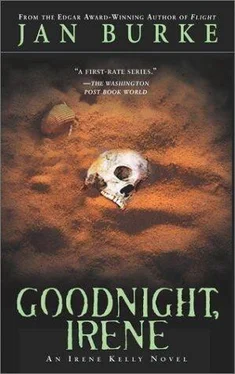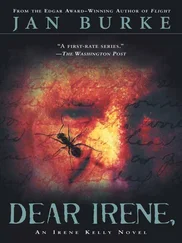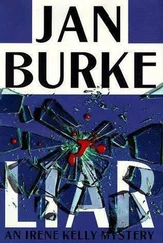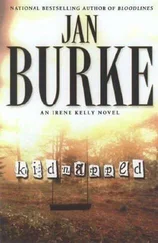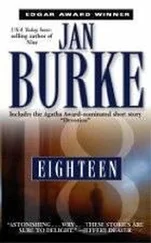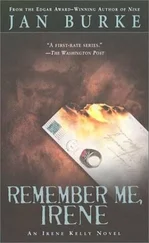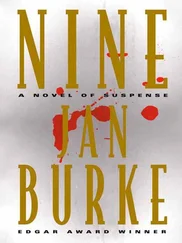I rewound the microfilm and put it back in its box. I turned off the machine and sat there in the dark for a minute.
I didn’t want to tell Frank, and I wasn’t sure why. But I knew for damn sure that I didn’t want him to hear about it from Pete Baird. Hell, considering Pete’s basic buttinsky nature, I might already be too late to be the one to tell Frank about it. If I decided to tell him.
Nuts.
IWENT BACK UPSTAIRS and called Frank and told him what I had learned about Woolsey. He said he’d ask if Pete could spare some time to go through old files to find more information on the Decker accident and the shy witness. Hearing that he was going to be talking to Pete, I arranged to have lunch with Frank, thinking maybe I’d get a chance to talk to him about my plans for the evening. Since I had only been there once, I asked for directions to his place and told him I’d bring some sandwiches from his favorite deli, the Galley.
That settled, I spent the next few hours looking over some of the political stuff O’Connor had been covering, writing up a couple of brief pieces about events scheduled for the upcoming week. I went back through some of the computer notes, but I still couldn’t make much out of the references to the mayor’s race.
I did start to notice that almost every reference to the mayor’s race had some connection to the one for the DA’s office. I skimmed back over them a few more times. The notes on Hollingsworth were at least as plentiful as those on Mayor Longren. Most really weren’t very revealing; they either seemed to chronicle fund-raisers held for the two races or contain general political background on the two men.
Both had held power in Las Piernas for decades, so there was little that was new in the background information. They were basically conservative, “law-and-order” types. Hollingsworth had a high conviction rate and Longren was an astute year-round grandstander. Running for city-wide office in Las Piernas was an expensive proposition, so incumbents never had too many problems getting reelected.
It was easier for Hollingsworth to pay his campaign bills; he had married into the Sheffield fortunes. Longren struggled harder, but always seemed to manage reelection. There was some decline in his campaign war chest after the California campaign funding reporting laws went into effect in the mid-1970s, especially as the laws were made stronger over a series of later initiatives.
Those laws require candidates to file public reports which state the full name, address, occupation, and employer of anyone who contributes over ninety-nine dollars to a campaign in any one-year period. The idea is to give voters a chance to see who is backing whom and how much a candidate is dependent on a given supporter or company or political action committee. Longren’s funding problems probably meant that before the laws were passed, his big money had come from people who didn’t care to be identified.
While I was in the midst of all these political and legal musings, the phone rang. It was Barbara, calling me back. I asked how Kenny was feeling.
“Oh, he’s doing a lot better. He’s conscious and able to talk a little. He doesn’t remember anything about being beaten, but the doctor says that isn’t uncommon with head injuries.”
“Maybe it will come back to him later.”
“Maybe.”
“You sound kind of down,” I said. “Are you okay?”
“What? Oh, yeah, I’m okay. Just tired, I guess. He still seems happy that I’m here with him. I was kind of worried that things would go back to-well, go back to the way they were before.”
“You’ve been great for him, Barbara, sitting there all those hours. Any chance of getting away for a while tomorrow?”
“I don’t know. For how long?”
“Oh, how about lunch? Maybe we could go sit on the beach for a while. Whatever you want. I could use a change of pace myself.”
“What the heck. Okay, let’s go out together tomorrow afternoon. I’ve been reading about all the things that have been happening. Are you sure it’s safe for you to be out in the open?”
“No, and if you’re afraid to be with me, I don’t blame you.”
“Oh, I don’t mind that part of it. I just keep wondering if you wouldn’t be happier working for Kevin Malloy again.”
“Probably safer, definitely not happier-no reflection on Kevin.”
We said good-bye and hung up. I closed out the computer files and turned in what I had written. I called in the deli order, then took off for Frank’s house.
In June, almost every day’s weather forecast is the same: “Late-night and early-morning low clouds, burning off to hazy sunshine in the afternoon.” The hazy-sunshine part was in progress when I drove out of the parking lot. When I reached the corner of Shoreline and Hermosa, I stopped off at the Galley and picked up the sandwiches I had ordered-a couple of pastramis with hot mustard.
I rode the long stretch past the marina and the mansions on the bluff, finally turning down one of the small avenues that led to the beach. I made a few more turns and looked for a parking place.
School wasn’t out for the summer yet, so street parking was not too bad, but I took advantage of the fact that Frank had the ultimate beach-house luxury: a driveway and garage. I got out of the car and stood there for a moment, feeling the contrast of sun and ocean breeze on my face. Seeing the house by daylight for the first time, I noticed it was neatly painted and the small front yard was well cared for. Frank was no slouch.
I entered the fenced yard from a side gate and made my way to the front door. I was surprised when Frank answered the door himself.
“Where’s your baby-sitter?” I asked.
“The department can’t keep somebody on a duty like that forever. I don’t think I was the target anyway. You’re the one we need to keep an eye on. Come on in.”
He was moving a little slowly as he led me toward the back of the house, but his steps weren’t those of someone feeling weak or pain-ridden.
“You’re really making progress,” I said.
“Getting damned impatient with it all.”
“Hey, a few days ago you scared the hell out of me. You could use a little boredom.”
“Life has been anything but dull around you, Irene.”
“Thanks, I think.”
He took me out the back door onto a wooden deck. The yard was very private, another rarity in houses near the beach. Latticework over the deck was covered with honeysuckle vines. Beyond the deck was a winding brick pathway cheerfully bordered by poppies and other colorful flowers. In one corner, another deck began, shielded from view between the garage and back fence, where a willow grew. Tall plants of various kinds grew along the side fences. It was a green and peaceful place. Somehow I had not pictured Frank having this kind of yard.
As if reading my mind, he said, “I like working out here. It’s where I spend a lot of my spare time. A little world of my own, I guess.”
“It’s great,” I said.
We sat down in a couple of redwood chairs. He had put out a small cooler with some white wine in it. He poured out a couple of glasses and we drank and ate our sandwiches. Again there was that comfortable silence between us, and I felt my anxiety about talking to him about my plans for the evening ebbing.
“I’m going to the Hollingsworth fund-raiser tonight,” I began.
He looked up over his wineglass, but didn’t say anything.
“I’m going with Guy St. Germain.”
Suddenly he put the glass down and started laughing, holding the side with the cracked ribs and saying, “Oh, God, that hurts.” But still laughing.
“I don’t suppose you’d mind letting me in on the joke?”
Читать дальше
